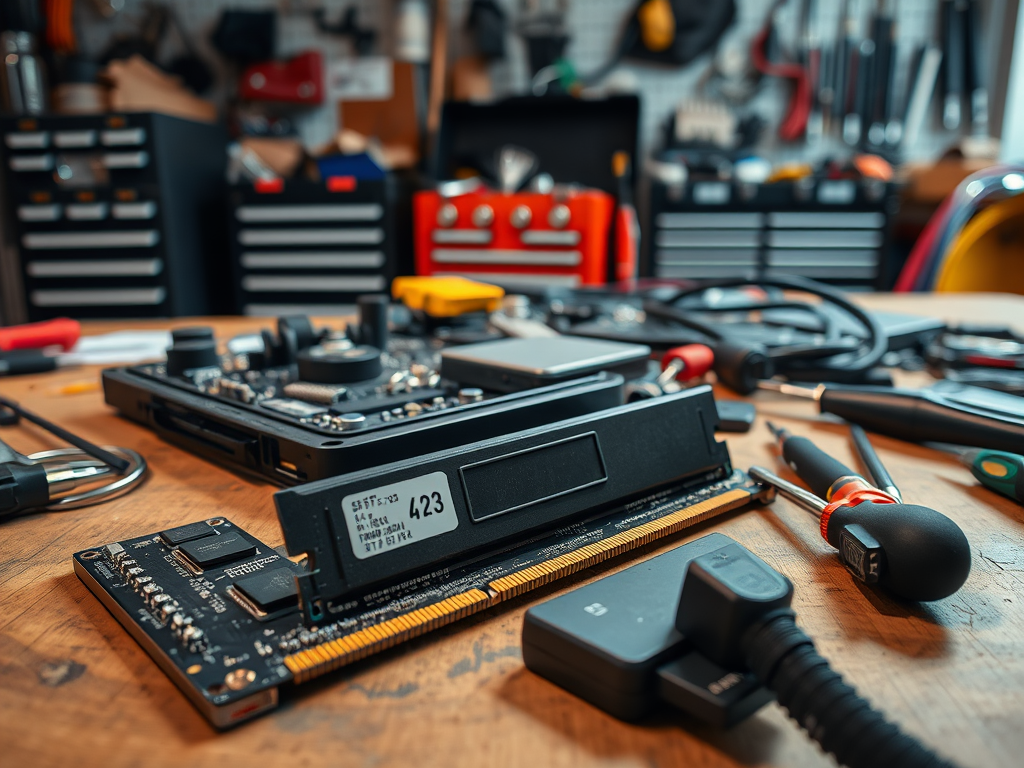In a world where technology drives our daily lives, computer problems can feel like a harsh interruption. Whether it’s a sluggish startup, unexpected crashes, or hardware mishaps, we often find ourselves at the crossroads of fixing it ourselves or reaching out for professional help. The debate has been ongoing—should you dive into the world of DIY repairs, or is it wiser to hire a professional with the expertise to handle these issues? This guide will illuminate the pros and cons of each approach, assisting you in making an informed choice that suits your skill level and the severity of the issue at hand.
Understanding Common Computer Problems

Computers, like any technology, are prone to a variety of issues that can arise at any time. From minor software glitches to significant hardware failures, knowing the type of problem you’re facing can significantly impact whether you should DIY or call in the pros. Common problems include:
- Software issues like malware infections or operating system errors.
- Hardware failures including hard drive crashes or power supply problems.
- Connectivity issues such as Wi-Fi malfunctions or peripheral device problems.
Understanding these problems will help you appreciate the complexity involved and whether it’s something you can tackle yourself. For some users, it can be daunting to analyze their computer’s symptoms and decipher what immediately needs addressing.
The Case for DIY Repairs

There’s an undeniable sense of satisfaction that comes with fixing something on your own. By taking on the challenge of repairing your computer yourself, you not only save money but also gain invaluable skills along the way. The benefits of DIY repairs include:
- Cost savings: Avoiding service fees can keep your budget intact.
- A sense of accomplishment: There’s nothing quite like troubleshooting and resolving a problem.
- A learning opportunity: Every problem offers a chance to expand your technical know-how.
With countless resources available, like online tutorials and hardware forums, finding information to assist you in DIY repairs has never been easier. You can also invest in diagnostic tools that guide you through the repair process, simplifying complex procedures.
While diving into DIY repairs is appealing, it’s essential to know when this approach is viable. For example, tackling minor software issues, such as removing malware or performing routine updates, can be done with relative ease. Hardware upgrades, like installing more RAM or upgrading to a solid-state drive, are other areas where DIY can shine. Simple troubleshooting steps, such as re-installing software or checking cable connections, can save time and avoid unnecessary stress.
| DIY Repair Benefits | Professional Repair Benefits |
|---|---|
| Cost-effective | Expertise and experience |
| Gain skills | Time-efficient solutions |
| Sense of accomplishment | Warranty protection |
The Case for Hiring a Professional
Despite the allure of fixing your own computer, there are certainly advantages to seeking professional assistance. When you’re faced with more complex issues, the expertise of a trained technician can be invaluable. Professional help brings several benefits, such as:
- Expertise and experience with a range of computer problems.
- Time efficiency: Professionals can diagnose and repair issues more quickly.
- Warranty protection on repairs and parts.
Certain situations certainly demand professional assistance. For example, dealing with significant hardware failures, like a faulty motherboard, or data recovery needs requires specialized knowledge that most DIY repairs cannot effectively address. In such cases, not only is a pro’s technical expertise beneficial, but it can also prevent further damage to your device.
How do you know when it’s time to put down the tools and call in a professional? There are several indicators that suggest professional help may be necessary:
- Persistent issues that remain unresolved despite your troubleshooting efforts.
- The risk of data loss or corruption with further attempts to fix the problem.
- A lack of technical knowledge or confidence to tackle the issue safely.
The Cost Factor
When weighing your options, it’s important to consider the financial aspect of both DIY and professional repairs. While DIY solutions offer the initial appeal of cost savings, the long-term financial impact should also be evaluated. Often, the purchase of replacement parts and necessary tools can add up, which may not save as much as you initially thought. Conversely, professional services often come with an upfront cost, but the assurance of expertise and warranty can sometimes save you from future expenses.
Conclusion
When deciding whether to fix your own computer or hire a professional, weigh the severity of the issue against your level of comfort and skill. While DIY repairs can be rewarding, professional services offer expertise that can save you time and prevent further complications. Take the time to evaluate your specific situation, and remember that both options have their place. By assessing your technical knowledge and the complexity of the problem, you can make an informed decision that best suits your needs.
Frequently Asked Questions
- Is it really cheaper to fix my own computer? Yes, DIY repairs can save money, but consider the cost of tools and potential mistakes.
- What tools do I need to fix my computer at home? Basic tools include screwdrivers, anti-static wrist straps, and software diagnostic tools.
- How do I know if my issue is too complex for me to handle? If you’re unsure or the problem persists despite basic troubleshooting, it might be time to consult a professional.
- Will hiring a professional guarantee my computer will be fixed? While professionals have the expertise, certain complex issues may still require multiple attempts or further diagnosis.
- How can I choose a reliable computer repair service? Look for reviews, ask for recommendations, and check for certifications or warranties provided by the repair service.



